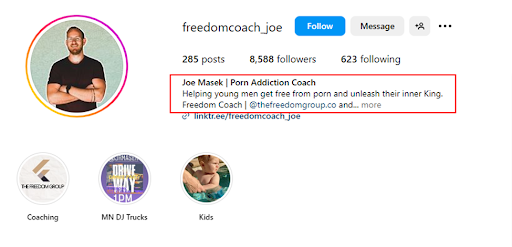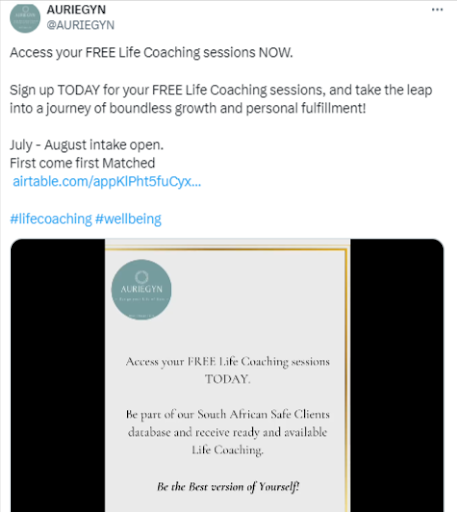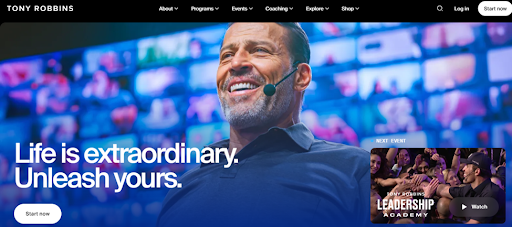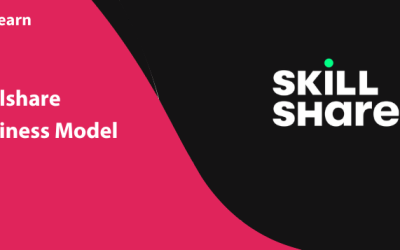How to Start an Online Life Coaching Business: A Start-to-Finish Guide
Do you have the innate desire to help people unlock their full potential or carve their dream career? Perhaps, being a life coach is a great place to start! Becoming a life coach is a full-filling career, but all clients seek here are results!
So, how can a coach metamorphosize these results? Well, a clear roadmap on how to start a life coaching business and defining the right offer can work like a charm!
In this blog, we provide a comprehensive breakdown of starting a life coaching business, from determining your skill sets to attracting your first client. So, are you ready to navigate the life coaching business landscape?
Is Life Coaching Worth it?
Before you hang up your shingle as a life coach, there’s an essential question: Are life coaches worth it?
Well, do life coaches make money?
Yes, life coaching is indeed a profitable industry. In fact, it is the second-largest growing industry in the world, valued at $2.1 billion in 2023. The industry has grown 5.6% between 2018 and 2023.
According to ZipRecruiter, an average life coach earns around $38,219 yearly in the United States. At the same time, the pay range is within $51K/yr – $91K/yr on Glassdoor. However, there’s no cap on earning from the life coach business. It depends on your niche, experience, location, and package pricing.
Life coaches with considerable expertise and a solid offering earn a six-figure income! One-to-one and group coaching services also affect earnings.
How to Start a Life-Coaching Business?
Life coaching is an easily penetrable business, and there are many life coaches inching for space. A unique business proposition helps you stand out and resonate with your target audience!
Here’s how to start a life coaching business and earn a six-figure income:
1. Achieve Something Notable
Before delving deep into how to start a coaching business, there’s one crucial question to ask yourself!
What distinguishes a great coach from a good coach?
A great coach inspires and guides people to reach their goals and achieve the extraordinary.
Tonny Williams says, “The right life coach guides you to attain and even exceed your dreams and goals.”
To inspire your clients, you need to first rewind your story and identify your notable achievements—something worth inspiring that you could share with them and get inspired by!
For instance, how you overcame your stage fear and became a public speaker or how you discovered financial freedom despite losing your job.
2. Pick up a Life Coaching Niche
Next, from your achievements, you can clearly determine your skill sets and strengths.
Ask questions like: What are you passionate about? Is there anything you love doing or consuming all the time?
Once you have analyzed your strengths, interests and passions, it’s time for some market research! Explore if there are life coaches with similar offerings and how well-received it is by clients. What’s their unique value proposition?
Life coaching is a generic term. Hence, refining your niche and breaking into a specific problem, audience or age-group helps to resonate with them better.
Here are a few life coaching business ideas:
- Relationship Coach
- Career Coaching
- Mindset Coaching
- Happiness Coaching
- Personal development coaching
- Parenting Coaching
- Performance Coachings
You can even narrow down your niche further.
Here’s how you can target a specific niche:


So, the individuals who are facing the specific problem would approach these specific coaches, rather than a life coach.
Lastly, validate whether your niche is profitable and has subsequent demand.
3. Research Your Target Audience
Well, now you might have picked up the niche you are comfortable with, it’s easier to understand your target audience.
Analyze their goals, struggles, pain points, and interests to define your offerings and match their expectations.
Create a buyer’s persona briefly mapping their demographics, interests, history, problems, job, etc. Further, identify the social media platforms your clients typically spend their maximum time. This helps to deduce your ideal client’s rough sketch!
Look for specific phrases or terms your audience frequently uses to define their problem.

4. Define Your Unique Business Plan
Starting a life coach business could be pretty overwhelming, given the multiple aspects to be considered. As the popular quote states, “By failing to prepare, you’re preparing to fail.”
A clear life coach business plan helps to streamline your online coaching business better. It equips you to face the unexpected financial and marketing challenges that might pop up through your journey.
Listed below are the crucial aspects of a coaching plan:
- Executive Summary
- Company Description or Mission and Values
- Financial Projection
- Marketing and Sales Strategy
- Unique Business Proposition & Competition Analysis
An effective coaching plan is like a main sail that motivates you and offers a greater grasp of the big picture!
5. Create Legal and Administrative Setup
Next, it’s time to officially establish your business. You need to register your business name and choose the right business structure to proceed.
The right business structure helps with personal liability, tax filing, funding, etc.
Here are the popular types of business structures:
-
Limited Liability Company (LLC)
An LLC separates business and personal liabilities. When you establish an LLC, you aren’t legally liable for your business.
-
Sole Proprietorship
It is the simplest business structure, where a single individual takes away all the profits. Also, they are liable for all the debts, taxes, losses, etc. Moreover, a sole proprietorship doesn’t separate your personal and business liabilities.
-
Partnership
On the other hand, partnership is a relationship between two or more people to run a business. Each entity contributes to money, skill, or labor and subsequently they also share the profits and losses.
-
Corporation
The corporation is a business structure established by business owners, shareholders, or stakeholders to earn a profit.
Once you’re done with deciding the business structure, it’s time to lay the rules — define the coaching contract.
So, what does it include? A coaching contract includes an overview of the coaching program, its length, disclaimer, refund policy, etc.
P.S.: If you need more information on finding the right business structure, check out this detailed article from the IRS.
6. Build Your Online Presence
85% of consumers conduct at least basic research before opting for a purchase online. Building a strong online presence sets the narrative for your brand and builds trust in your coaching business.
Target the following channels to build a solid online presence:
- Professional Website
Your professional website is your first point of contact — the first aspect your clients would be searching online. 71% of small businesses have a professional website. It’s the perfect place to show who you are, what you can offer, and how to reach out to you.

- Social Media
Establishing your brand on social media helps to tap into the 5.07 social media users!
Identify the social media platforms where your prospective clients typically hang out. For instance, if you’re a porn addiction coach for teens and young adults, Facebook and Instagram are ideal to attract a young audience.

7. Design Your Signature Package
You have determined your coaching niche, crafted your business plan, and even established your social presence, it’s time to mold your signature package!
Your ultimate goal is to create a high-value offer — what the clients will get and are ready to pay in exchange.
There are several aspects involved in crafting your first coaching offer:
-
Research Your Ideal Client
While you might have created an ideal client profile in the previous step, it’s time to utilize this information. Design your coaching program based on their experiences — determine the program’s highlights and shortfalls.
-
Design your Coaching Program
It is the product or solution to their problem that helps them to reach from point A to outcome B. So, how to create your signature coaching program? The four pillars of a coaching program are duration, outcome, coaching format, and price. A clear session plan makes your coaching an impactful experience for your clients!
-
Create Coaching Materials and Resources
Lastly, your coaching program isn’t complete with the right set of tools, activities, and mechanisms. Share all the necessary resources, templates,guides that would help your clients achieve their results.
Attract Your First Clients
“Connect, invite, create magic, and propose to win clients!”
- Prosperous Coach book by Rich Litvin
So, you have crafted your masterpiece, but it’s time you step into the actual field! Finding your first client is always the hardest part!
But sitting on the shores anticipating the storm won’t do any good! To fish a big client, you need to sail through the dynamic waters, right?
Spreading the word loud would certainly create ripples and make your offer get noticed!
Listed are some of the effective ways to increase your brand visibility:
- Offer free consultations and workshops and win testimonials.
- Target specific Facebook groups and communities like subreddits.
- Share valuable information and insights through blog posts, podcasts, and webinars.
- Engage in discussions on Quora and Reddit and establish domain authority.
- Drive traffic from guest posts on relevant websites and target audiences through effective CTAs.
- Collaborate with influencers in your niche and cross-promote.
- Run paid ads on Facebook, TikTok and Instagram to target specific audiences.
- Engage and educate your audience through Facebook live-streaming sessions
- Create a solid network and ask clients for referrals.
- Optimize your website and blog posts to rank higher in user search queries.
- Send an email sequence and promote your coaching services.
9. Deliver Your Coaching Program
You have your first client, and you are eager to share your coaching mastery with them!
And you are just one step closer to delivering a remarkable coaching experience, but there’s a roadblock — mastering technology.
Yes, when you are just starting as a coach, technology can be an essential roadblock!
Here’s all the basic tools you need to get started with your coaching business:
- Video Conferencing tools like Zoom, Google Meet, LessonSpace
- Website Creation Tools like WordPress, Wix, Canva, etc.
- Secure communication tools for messaging, newsletters, forums, social management tools, email analytics
- Analytics Dashboard for tracking appointments, payments, overall earnings
- Popular payment gateway integrations with Stripe, PayPal, etc
- Marketing tools like MailChimp and Google Analytics
Well, that’s a pretty long coaching checklist, but this could be the holy grail of your scale your coaching business!
Successful Life Coaches: Examples Worth Inspiring
Next, let’s explore the journeys of the most successful life coaches in the world!
1. Tony Robbins
A renowned entrepreneur, best-selling author, and one of the world’s top business and life strategists, Tony Robbins needs no introduction! In his four-and-a-half decade career transforming over 50 million people across 80 countries, Tony Robbins has reshaped the landscape of the life coaching industry as well!
His body of work includes “Unleash the Power Within” and “Awaken the Giant Within.” Tony Robbins employs strategies like improving mindset, goal setting, and interactive storytelling to make a positive impact in client’s lives.

2. Alyssa Nobriga
With over 197K instagram followers, Alyssa Nobriga is a renowned life and professional coach. She is a licensed psychotherapist and employs insights from her learning in her profession as well.
A staunch advocate of women empowerment Alyssa helps people to unleash their true potential. Besides, she also is the founder of “The Institute of Coaching Mastery” that offers certifications and 1:1 programs for training budding coaches.

Are You Ready to Start Your Life Coaching Business?
Starting a life coaching business is a rewarding endeavor, but you must have a clear roadmap to navigate through the coaching landscape. After reading this blog, you might have a clear grasp on how to start a life coaching business.
Coaching is not easy, but it is certainly doable! Create a signature coaching program and market yourself enough to attract the right clients!
An excellent step to kickstart this endeavor is by establishing a thriving community! Pinlearn is a readymade clone script with essential features like live streaming, inbuilt payment gateway, analytics, and calendar management to set your coaching marketplace! So, are you ready to take a giant leap in your business?
FAQ-Related to How to Start a Life Coaching Business
1. Do life coaches make money?
An average life coach in the US earns around $38,219 yearly i.e. $18 per hour. Moreover, their earnings depend on the niche, location, experience, and offering.
2. How much should I charge for life coaching?
Experience, target audience, and coaching services are the factors influencing your life coaching charges. As a life coach, you can charge around $75 – $120 per hour.
3. How to set up a business as a life coach?
To set up a successful life coaching business, find your coaching niche, craft a stellar life coach business plan, create your coaching offer and finally attract clients.





